Canadian Profits and Nuclear Armageddon Pt 1
In spite of self-righteous posturing as a peaceful nation, the Canadian military-industrial complex helped develop and fuel nuclear weapons. Yves Engler, author of “Stand on Guard for Whom?” joins Paul Jay on theAnalysis.news.
TRANSCRIPT
Paul Jay
Hi, I’m Paul Jay. Welcome to theAnalysis.news. Please don’t forget, without your financial support, moral support, sharing, social media support, we can’t do this. I’ll be back in just a few seconds with Yves Engler, and we’re going to talk about the self-righteous Canadians.
Canadian governments like to portray themselves as the peacekeepers, the more reasonable country that tries to mitigate the excesses of American society and its military machine. Of course, Canada pitches in troops when necessary, but only when it seems like a just and legal war or so goes the self-serving and self-righteous narrative. Well, Yves Engler has written a new book that exposes the true North’s role in serving and making massive profits from the U.S. military-industrial complex. The book is titled Stand On Guard for Whom? A People’s History of the Canadian Military.
In the Canadian national anthem Oh, Canada, the phrase ‘we stand on guard for thee’ is repeated three times in four stanzas. Just who we stand on guard for is never made clear, but when the first version of the anthem was written in 1880, the main threat to stand on guard from was coming from the South. That said, a 1908 version made Canada’s military role clear at the time. Quote “At Britain’s side, whate’er betide. Unflinchingly we will stand. With hearts we sing, “God save the King.” Guide then one Empire wide, do we implore.”
Canadian elites and military have always found it profitable to support Empire. With the coming to power of Prime Minister Lester Pearson, Canada became a fullfledged junior partner of the American global hegemony. In fact, it was President [John F.] Kennedy that helped put Pearson in power in the first place in a flagrant manipulation of a Canadian election. More on that later.
None of what follows is meant to denigrate the courage and self-sacrifice of thousands of Canadians who served in the Canadian Armed Forces. My father was one of them, flying as a Navigator for the RCAF [Royal Canadian Air Force] from 1939 to 1945 in some of the most dangerous missions of the war. It was typical of the Canadian government in World War I and World War II to allow Canuck’s to be fodder in what amounted to suicidal missions and often pointless ones. My father consciously volunteered to join the Air Force in order to fight Hitlerite fascism, but he never had any illusions about Canada’s role in supporting fascism in the lead-up to the war. Including, as Yves writes in his book quote:
“Canada largely sided with the fascists during the Spanish Civil War. Ottawa refused repeated requests from Spain’s elected government to sell it weaponry. In April 1937, Ottawa passed the Foreign Enlistment Act in a bid to block Canadians from fighting on behalf of the Republican government.”
End quote. That is fighting against the dictator [Francisco] Franco, who was supported by [Adolf] Hitler and [Benito] Mussolini. My father’s brother volunteered and made it to Spain in spite of attempts by the Canadian government to obstruct the members of the Mac-pap [Mackenzie-Papineau] Battalion. Yves writes further down.
During this period, Canada found no fault in supplying war materials to the fascist Japanese army that occupied Korea and massacred the Chinese and Manchuria. In the years leading up to the start of the European front of World War II, Japan was the third-largest importer of Canadian nonferrous metals.
Every year on Remembrance Day, Canadian children are taught to recite a poem written by a Montreal doctor, John McCrae, in 1915 after thousands of Canadians were slaughtered in Yieppes, Belgium. The poem begins, “In Flanders Fields, the poppies blow.”. It ends with a call to arms.
“Take up our quarrel with the foe:
To you from failing hands we throw
The torch; be yours to hold it high.
If ye break faith with us who die
We shall not sleep, though poppies grow
In Flanders fields.”
I think it’d be better if kids were taught to read a piece by another Montreal doctor, Norman Bethune, who volunteered to go to Spain and China to fight against fascism. In 1939, he wrote:
“Are wars of aggression, wars for the conquest of colonies, then, just big business? Yes, it would seem so, however much the perpetrators of such national crimes seek to hide their true purpose under banners of high-sounding abstractions and ideals. They make war to capture markets by murder, raw materials by rape. They find it cheaper to steal than to exchange; easier to butcher than to buy.”
Bethune continues:
“Behind all stands that terrible, implacable God of Business and Blood, whose name is Profit. Money, like an insatiable Mulloch demanding its interest, its return, and will stop at nothing, not even murder of millions to satisfy its greed. Behind the army stands the militarists. Behind the militarist stands finance capital and the capitalist. Brothers in blood; companions in crime.”
Bethune ends with:
“Such an organization of human society as permits them to exist must be abolished. These men make the wounds.”
As much as Canadians like to think we’re better than that, the real history shows we’re not. Now joining us to discuss his new book, Stand On Guard For Whom? is Yves Engler. He’s a Montreal-based activist and author. He’s published 11 books, including House of Mirrors: Justin Trudeau’s Foreign Policy. Thanks for joining us, Yves.
Yves Engler
Thanks for having me.
Paul Jay
So, you traced quite a bit of history in the book. I’m going to kind of jump ahead and, in future interviews, pick up some of the other pieces of history. As people that watch theAnalysis know, I’m working with [Daniel] Ellsberg on a film about nuclear weapons. So, I jumped right to your chapter about Canada’s role in developing the apocalypse, apocalyptic weapons. So, start with the history of Canada and nuclear weapons. I guess it starts with uranium?
Yves Engler
Yeah. Canadian uranium was used in the U.S. nuclear weapons program, and ultimately the bombs dropped on Japan. In fact, in the late 1990s, the Dene people, who the uranium was taken from their land with little of their own control over. They actually apologized to the people of Hiroshima and Nagasaki for the bombs being dropped. The Canadian government spent huge amounts of money researching nuclear weapons during World War II, coordinating with the British and the Americans. The British nuclear weapons program actually moved to Canada for safety reasons during World War II. Canadian officials were signatories to the Quebec Agreement between the U.S. and the British around nuclear weapons development, and Canadian officials were aware that the nuclear weapons were going to be dropped on Japan.
So, there’s a history of Canadian support for nuclear weapons. The Prime Minister, after Hiroshima and Nagasaki are bombed, says in his diary that he’s happy that this took place on the Asian races versus the European races, reflecting a certain kind of racism. I think that the Canadian involvement in nuclear weapons production and then Canadian military having nuclear weapons in future years is really kind of reflective of how Canada was very close to the British Empire and then, during World War II, became very close to the U.S. military. So, it’s sort of an outgrowth of Canada’s kind of unique history of close ties to the two great military empires of the past couple of hundred years.
Paul Jay
As the American economic investment, power, control of Canada grew—even before the First World War, a lot of the railroad expansion in Canada was actually American capital. Between the wars, Americans increased their position enormously. Off the top of my head, I believe, by the Second World War had overtaken British investment, but Prime Minister [John] Diefenbaker, who was in power in the late ’50s and early ’60s, he was still playing this sort of positioning of trying to play off the Americans and British, to some extent—having certain independence from the U.S., which pissed the hell out of Kennedy. It came to a head over a couple of issues, which directly connected with nuclear weapons. Tell us that story.
Yves Engler
Yeah, well, in the October 1962 blockade, Cuban Missile Crisis, the Diefenbaker government was unwilling to just accept the U.S. position. Most importantly, putting NORAD [North American Aerospace Defense Command] on high alert and that angered the U.S.. So basically, Diefenbaker and the foreign Minister were not happy to just go along with the U.S. position. In fact, Canadian naval vessels, without any political directive, did support the U.S. blockade of Cuba. The main thing that Kennedy wanted, which was the NORAD high alert and the full political subservience, they didn’t do. The head of the Canadian naval at the base in Halifax actually deployed Canadian naval vessels acting like they were part of a training mission, but they were just supporting the U.S. without having any piece of paper or any directive to do so. He basically broke the proper civilian-military command structure.
Paul Jay
Let me interrupt. There was a proper military-civilian command structure. Just the civilian command structure was in Washington, not Ottawa.
Yves Engler
No, exactly, and it’s actually totally surreal to read some military historians. Like Jack Granatstein points out, this is the worst breaking of the proper command structure in Canadian military history. Note, this is a very pro-military historian, but there’s actually a number of military historians that I quote in the book that actually act like this was a good thing that the naval commander just ignored the political directive and just followed the political directive from Washington versus what the people were supposed to be doing.
Paul Jay
Yeah. Let me add one other note. It’s Pierre Trudeau, the current Trudeau’s father. When he was Prime Minister, he got all the credit for Canada maintaining a sort of independent policy on relations with Cuba. But actually, it’s not true. It’s Diefenbaker that established that and defied the Americans, and maintained normal diplomatic and trade relations with Cuba. But go on with the story.
Yves Engler
Yeah. There’s actually more to that story as well, but the result of Diefenbaker’s position on the Cuban missile crisis. I think that more generally, there was a— Diefenbaker, it should be noted that he wins the election, in part, by criticizing Lester Pearson, then as Foreign Affairs Minister and his role in the Suez crisis. So, the British, the French and Israelis invaded Egypt in 1956, and the famous peacekeeping mission that Lester Pearson came up with was done in conjunction with John Foster Dulles. It was a way the Americans opposed the British French Israeli invasion. The peacekeeping mission was a way to basically help the British out of this disastrous invasion, but it was the clear diplomatic break of Canada being tied to the British Empire and then being tied to the American Empire.
Paul Jay
Okay, let me just add another fast note because we have a lot of American viewers. So Diefenbaker was the head of the Conservative Party. He had maintained more relations with the British, and Pearson became the head of the Liberal Party. Pearson and the Suez crisis, as you mentioned, is an example of how much Pearson was allied with the Americans.
Yves Engler
Exactly. This is part of the background to Kennedy being closer to Pearson and hostile to Diefenbaker. What happened with Cuba just amped up that longer history of tension or political disagreement and, so, then Kennedy helps basically have the Diefenbaker government collapse in early 1963. There’s a series of parts to that—everything from leaking all kinds of negative press reports in the U.S. media around Diefenbaker, U.S. officials repeatedly calling Diefenbaker a liar. The head of NATO [North Atlantic Treaty Agreement] comes to Ottawa in early 1963 to basically say that Diefenbaker’s refusing to take bomarc missiles and is undermining Canada’s role in the NATO alliance. So, there’s a whole series of measures that Kennedy pursues to precipitate the fall of the Diefenbaker government, and then when that happens, there’s a series of measures to support Pearson during the 1963 election. The most important one is his pollster, Lou Harris is sent—
Paul Jay
His meaning Kennedy’s?
Yves Engler
Kennedy’s pollster is sent to support the Liberal Party, Pearson, during that election. And previously, the Labor Party in Britain had asked to have Lou Harris support them. That was refused, but then it was granted to Pearson. There’s other claims that Diefenbaker and other Conservative officials claim that the CIA actually was involved throughout the election campaign in sort of undermining their campaign. Some of that’s never really been fully—
Paul Jay
But one of the things that is, I believe now factually proved, is that Kennedy and I don’t know if it’s through the CIA or not, but he arranged for Lou Harris, the pollster, to get a phony passport under a false name and go to Ottawa. My old colleague who helped me create this TV show, CounterSpin, he says it was a standing joke amongst journalists at the time of that election that Pearson’s campaign was being run by Lou Harris out of the basement of the U.S. Embassy. Literally out of the U.S. Embassy. He brought all these modern polling methods to help message and create Pearson’s campaign and defeat Diefenbaker, but let’s talk a little bit more about that bomarc missile issue because that’s a big deal.
Kennedy wanted nuclear-armed bomarc missiles on Canadian territory as part of this SAGE [Scientific Advisory Group for Emergencies] radar system that was supposed to shoot down Soviet bombers when they come in. Diefenbaker said no, partly because if I understand it correctly, he said it would just make Canada a target. Is that right?
Yves Engler
Yeah. He was concerned about making Canada a target, and I think that there was a certain degree of ambivalence towards nuclear weapons, of course. Also, Diefenbaker had been ambivalent towards NORAD, which is set up in 1958. The negotiations for that began earlier before he became Prime Minister, and it’s viewed that the military basically forced Diefenbaker into agreeing to NORAD. I believe it was initially signed in 1957 and came into effect in ’58. The military basically forced it upon Diefenbaker. The bomarc missiles, which were stationed, I believe, mostly in North Bay, Ontario, I think there were some in Quebec as well. Effectively, they were under the control of the NORAD headquarters in Colorado, obviously. So basically, effectively under the U.S.— not effectively. They were under U.S. military control of Canadians that are part of the NORAD command structure as well. So, there was an ambivalence around that question, and I think it just fit within a kind of more general questioning of U.S. military power.
Now, I’m kind of a little bit ambivalent around Diefenbaker because he was somebody who was supportive of the British Empire and it’s not like the British military and the British Empire were some sort of Democratic or humanitarian force. So, it’s kind of a battle between two different political outlooks that I don’t really agree with, but certainly, the extent to which Kennedy and the U.S. played a role in precipitating the Diefenbaker government’s fall but also Pearson’s rise is one that’s a pretty scandalous story. Just one little anecdote in this. Pearson himself tells a story just the extent to which Kennedy was sort of intervening. He tells a story about how Kennedy wanted to meet him in person during this period when he was the head of the opposition in 1962. In 1962 he asked to have a justification for Pearson to go down to Boston. He asks Pearson if he has an honorary degree from Harvard. Pearson already has an honorary degree from Harvard. He says, do you have an honorary degree from Boston College? I think Pearson already had an honorary degree from Boston College. They said, how about BU Boston University? And he comes up. Kennedy orchestrates getting Pearson an honorary degree from Boston University to have a reason for Pearson to go down and then to have private meetings with Kennedy on the side.
Paul Jay
Because he’s not the Prime Minister, he’s the leader of the opposition, and it wouldn’t be appropriate otherwise.
Yves Engler
And there was already criticism of Pearson being sort of a U.S. stooge and being really close to Kennedy and to Washington. So to have this other rationale and obviously, that would also add to Pearson’s media aura that he gets lots of honorary degrees from prestigious institutions. But that just gives you a sense of how much Pearson— I did a whole book about Pearson. Pearson had really been aligned with the U.S. going back to during World War II, right after World War II, on questions from the partition plan on Palestine, to the Korean War, to supporting the ouster of [Jacobo] Arbenz in Guatemala, et cetera.
Paul Jay
Let me just add a couple of notes to this. Of course, I agree with you about the British Empire, which has plenty of blood on its hands, but the extent to which Diefenbaker still maintained a certain amount of, if you can call it independence- dependence on Britain rather than total dependence on the United States. The Pearson election was really a watershed where from then on, both parties, Conservatives and Liberals, became complete junior partner supplicants of the United States. Diefenbaker was overthrown within the Conservative Party, but it’s an important watershed moment in Canadian politics and Canadian history.
This bomarc missile thing, a lot of it was used to defeat Diefenbaker, not just because Kennedy wanted bomarc missiles in Canada, but there was a lot of Cold War hysteria in Canada. So it would look weak on fighting communism, fighting the Soviet Union, and all that. That was also meant to help Pearson and, in fact, as I understand it now, from talking to Ellsberg and others like Lester Earnest, who worked on the SAGE radar program, which is the one that controlled these missiles. SAGE radar was supposed to detect the Russian Soviet planes, and then the missiles would be guided by computers to go hit them, which in itself was insane because, over Canadian territory, you would have nuclear Soviet bombers hit by nuclear weapons over Canadian territory. That’s what they wanted Diefenbaker to agree to, two nuclear blasts over Canada. The whole thing was bloody insane.
The only other part to it is that SAGE never worked. People that watch my interviews with Lester Earnest; the whole thing was bullshit. They had never solved the problem of radar jamming. They spent a trillion dollars over 25 years on this MIT [Massachusetts Institute of Technology] thing. It was just a boondoggle that MIT and a bunch of contractors made money out of. It wouldn’t have worked for one minute, and Kennedy knew it, but he needed to rub Diefenbaker’s nose in this bomarc missile thing. They wanted to establish the principle or precedent of nuclear weapons on Canadian soil, and he just didn’t damn well like that Diefenbaker had said no. Apparently, they also wanted Canada to have; in Europe, the Canadian forces should have some nuclear weapons and apparently, Diefenbaker didn’t agree with that either. So, there was an anti-nuclear thing. In fact, in that sense, there were sections in Washington that sort of agreed with them but were not dominant. Anyway, let’s move on, but just to sum all this up. Essentially, the United States carries out a regime change in Canada in order to assert its full power over the Canadian foreign policy and, certainly, military policy. But that ain’t all. Let’s go on. Should we go on to CANDU [Canada Deuterium Uranium] reactors at this point?
Yves Engler
Yeah. In the book, I suggest that after the nine countries have nuclear weapons, Canada is kind of next in line as playing the biggest role in nuclear proliferation. One element of this is the exporting of CANDU reactors, nuclear reactors to at least half a dozen countries. India uses the CIRUS [Canada India Reactor Utility Services] reactor to develop its nuclear weapons. Part of the reason they choose the Canadian is their weak safeguards in the agreement. Then Pakistan, of course, responds and also uses Canadian reactors, a CANDU reactor that’s exported to Pakistan.
Pakistan then uses the exports Canada already made for them to develop nuclear weapons. The Canadian government is even involved in nuclear cooperation with the South African apartheid white regime until fairly late in the apartheid game. So, the Canadian government has been heavily involved. There’s this huge amounts of uranium exports to the U.S. over many decades for a long period. It was after World War II; it was, I think, the fourth-biggest Canadian export: uranium.
So, the Canadian government has this history of being unconcerned about nuclear proliferation. Also, the Canadian military wanted Canada to acquire nuclear weapons and put forward numerous proposals over the years, explicitly lobbying for Canada to acquire nuclear weapons because they wanted to be part of the big boys if you like. So, the Canadian government and then also through NATO, right. Canada has supported NATO nuclear weapons. That goes on right up until today and has opposed efforts to rid the world of these abhorrent mass killers.
Paul Jay
Let’s go back to India and Pakistan for a minute because it may be that there is actually no more immediate danger to the world than a potential nuclear conflict between India and Pakistan. In Pakistan, you have a military that essentially runs the government, and that military is highly, highly infiltrated by Al-Qaeda and various other Islamic extremists. A lot of fanatical religion within the Pakistan military up into very senior levels. And then you have Hindu nationalist fascists in power in New Delhi. You have two sides of the equation of an extremely tense situation. Both nuclear-armed countries, both where things could easily get out of hand, where there’s outbreaks of actual fighting over Kashmir, every so often. An extremely dangerous situation.
Canada had a lot to do with providing the reactors that kicked this whole thing off. If these countries went to nuclear war, it wouldn’t just devastate millions and millions of people all throughout this part of the world. It also creates a kind of minor nuclear winter. And then the other thing that’s in the works right now is there’s some pressure building in the United States. By the way, let me say there’s a lot of religious fanaticism within the American military. I don’t think anyone can let that go unsaid when you’re talking about religious fanaticism in the military, but there’s a lot of pressure building to end the Test Ban Treaty.
Apparently, if the Nuclear Test Ban Treaty ends, it’s going to quickly speed up the development of an H bomb in India and Pakistan. If they were ever to go to war with H bombs rather than the older atomic bombs, that is apparently, according to a lot of the scientists that study climate change and nuclear winter, enough to create a global nuclear winter, which means essentially the end of most human civilization. Am I correct that it wasn’t unknown to Canada when they sold these reactors? That they would probably be weaponized even though Pakistan and India claimed they wouldn’t?
Yves Engler
I’m not sure about that, but what I am sure about is that the Canadian government in the agreements was very lax, specifically with the CIRUS to India on what they could do with it. The Indians chose Canadian technology precisely for that reason. After India tested its first nuclear weapon, the Canadian government brought in restrictions on any exports to India, but in fact, about a decade ago, the [Steven] Harper government, when they really sort of recharged relations with India, which was partly about concern around China, they restarted the nuclear exports. I believe there were even officials; if I remember correctly, there were even officials from CANDU that came on the trade mission with Harper to, I guess it was probably to New Delhi. It was a little bit controversial at the time that the Harper government was changing some of the agreements or some of the restrictions, should I say.
So yeah, the Canadian government has a certain degree of ambivalence, and they have hostility towards things like the TPNW, the Treaty for the Prohibition of Nuclear Weapons, and that’s the Trudeau government. When there was the initial UN [United Nations] in, I believe it was late 2016, discussions about holding a conference to try to come forward with an agreement to work towards banning nuclear weapons the [Justin] Trudeau government voted against it, and then Trudeau himself mocked it when they held a conference. About two-thirds of the world’s countries didn’t attend. And then, when the treaty was signed, Canada refused to sign it, and then it finally hit the 50 signatures. Fifty countries signed it, so it came into effect in January of this year.
The Canadian government continued to oppose it, and kind of, amazingly, throughout this whole thing, they say they want to rid the world of nuclear weapons. So they have quite good rhetoric on nuclear weapons, but they are unwilling to sign this landmark international treaty to try to move towards abolishing nuclear weapons, and I think that kind of fits with their stuff on concern around India and Pakistan potentially getting into a nuclear war. They’re more concerned with their NATO alliance and nuclear exports than they are with the existential threat that nuclear war poses to humanity.
Paul Jay
Just to add one quick note on Pakistan. It was the [Ronald] Reagan government that also facilitated or looked the other way, at the very least, as Pakistan developed its bomb. Even though I believe there has been a law passed in Congress banning any support for a Pakistani bomb. When Pakistan collaborated with Reagan in arms shipments to Afghanistan, Reagan agreed to let the Pakistanis develop a bomb without any interference.
The new German government just elected a foreign minister from the Green Party, and apparently, they’re going to take a position advocating NATO issuing a no first strike of nuclear weapons declaration. If I understand it correctly, that isn’t just a declaration if anybody gets serious about that. It’s also about what weaponry you have because certain weaponry really is designed for first strike. So then you have to start seriously looking at— like ICBMs [Intercontinential Ballistic Missiles] are first-strike weapons. A second strike doesn’t mean much. Where is Canada on this issue of no first strike? Do you know?
Yves Engler
I think that they’ve been opposed to some of those discussions within NATO, historically. I don’t know where the position is now. I know that the German government has talked about some sort of, I forget the exact terminology, but essentially an observer status within the treaty on the Prohibition of Nuclear Weapons. I believe the new Norwegian government is going to attend as an observer and that the Germans following suit is kind of viewed as starting the potential snowball within NATO around not support for the TPNW, but some level of interest in it. Thus far, the Canadian government has been completely hostile to any movements on that front.
Paul Jay
Now, it’s a well-known laughable secret that Israel has nuclear weapons. Everyone knows Israel has nuclear weapons. Everyone knows Israel has not signed the nonproliferation agreement. When I say everyone, it’s practically acknowledged. Jimmy Carter, former President, came out, I guess the first senior American to say so after he was President, said that Israel has nuclear weapons. But there’s been attempts to get Israel to actually sign international accords on weapons, and they refuse, but where’s Canada been on that?
Yves Engler
Well, the Harper government isolated Canada against most of the world in a vote in 2010, 2011 around a conference to discuss making the Middle East a nuclear-weapons-free zone. They voted against a couple of different initiatives that went in that direction. So the Canadian government has been— I don’t believe there’s been any new effort on that front during the current government, the Trudeau government. But the Harper government was quite explicitly hostile. That got a little bit of attention at the time. So, yeah, the Canadian government definitely kind of follows along with the U.S. on Israel.
When we talk about Iran, the flip side to this is the Canadian government says it’s all concerned with Iran’s nuclear weapons program. One of the best ways to ensure that Iran doesn’t acquire nuclear weapons is to have a nuclear-weapons-free zone in the Middle East that’s taken seriously and applied and overseen rigorously. But the obstacle to that, of course, is Israel’s nuclear weapons and the U.S. who sends its naval submarines, and whatever, which have nuclear weapons, into the region. So, when you see the Canadian government go on about concern around Iran’s potential nuclear weapons, which the reigning government has said it doesn’t want to require and has shown an openness to the idea of a nuclear-weapons-free Middle East, as have many countries in the region. It’s quite a hypocritical position, and Canada just goes along with Israel’s nuclear weapons program in power.
Paul Jay
Yeah, you write in the book that in 2012, there was a resolution at the UN calling on Israel’s weapons to be brought under the International Energy Atomic Energy Agency. There are only six countries that voted against it. Of course, Canada was one of them.
You talked about during the Cuban Missile Crisis, the break in the chain of command, where essentially the Canadian military was taking its orders from Washington. But I guess it’s in the ’60s you write that Canadian forces were actually negotiating to get nuclear weapons, and the civilian leadership didn’t even know.
Yves Engler
Yeah, well, there’s all kinds of coordination between the Canadian military and the U.S. military around nuclear weapons. Basically, Canadian military leaders want to try to move towards something towards a [foreign language 00:42:50] before bringing in the political leadership. There were divisions between external affairs and the military over nuclear weapons where external affairs didn’t want nuclear weapons, but the military wanted them. Also, as mentioned a bit, the military was— there were Canadian fighter jets stationed in Europe that all they had was a nuclear weapon. I think the Canadian military has been quite supportive of the idea of acquiring nuclear weapons, and they understand that their political echelon is ambivalent or hostile to those efforts.
They wanted Canadians trained after World War II. There were all kinds of Canadian military officials that were part of U.S. testing, and the Canadian military throughout that whole period wanted to ensure that they had the knowledge and technical capacities to potentially acquire Canadian-made nuclear weapons.
Paul Jay
Okay, so we’re going to pick this up in another segment. We’re going to talk. First of all, I have a question that will start the answer in the next segment: why didn’t the Canadian political elites go along with all the nuclear weaponization when they seem so willing to go on with most of what else goes on in U.S. foreign policy? So, please join us for that. And then, we’re going to talk about the broader relationship between the Canadian military-industrial complex and the American one. For now, thanks very much for joining us. Thanks, Yves.
Yves Engler
Thank you
Paul Jay
And thank you for joining us on theAnalysis.news. Again, please don’t forget the donate button. It’s near the end of the year. I know some people are thinking about giving money at the end of the year. They look at their taxes and all the money they made on the stock exchange, or I don’t know how many of our viewers can afford stock. I have no idea, but anyway, five bucks help. Five hundred helps. A dollar. Whatever you can do. Five thousand helps even more, and anyway, thanks a lot for watching.
END
Podcast: Play in new window | Download
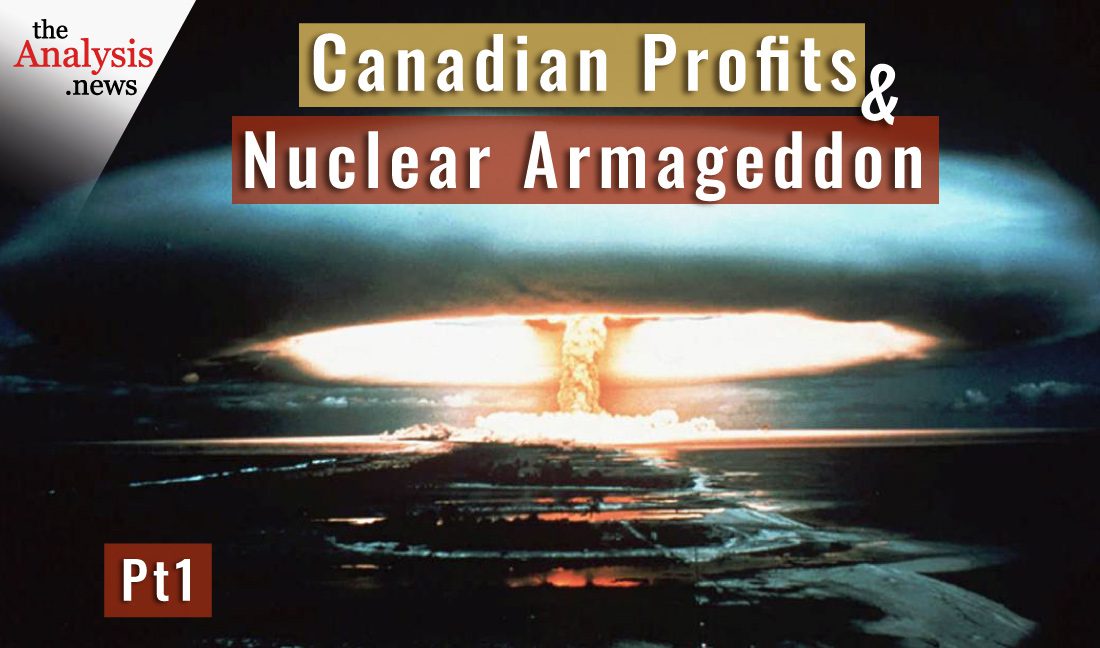

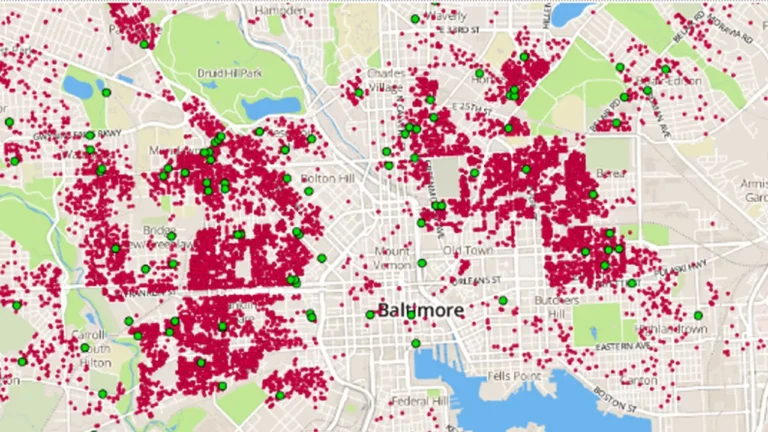
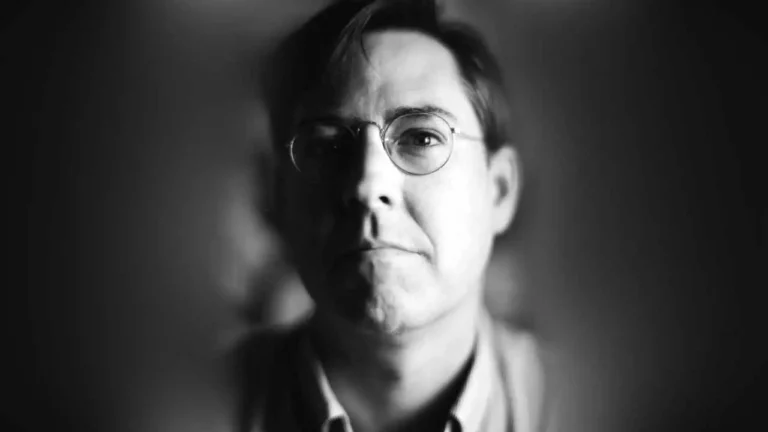
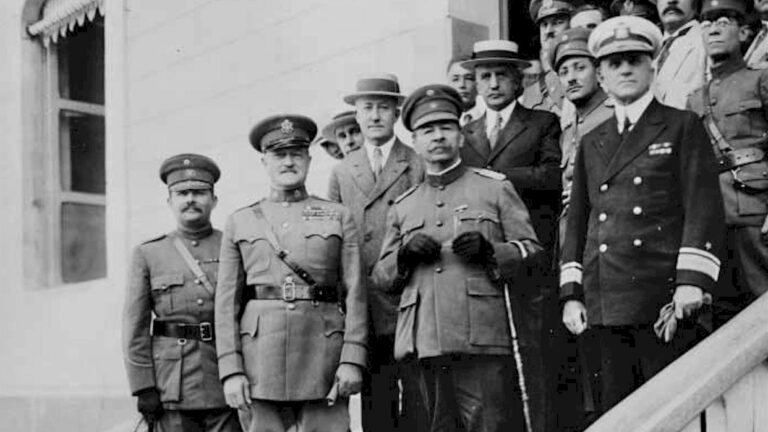
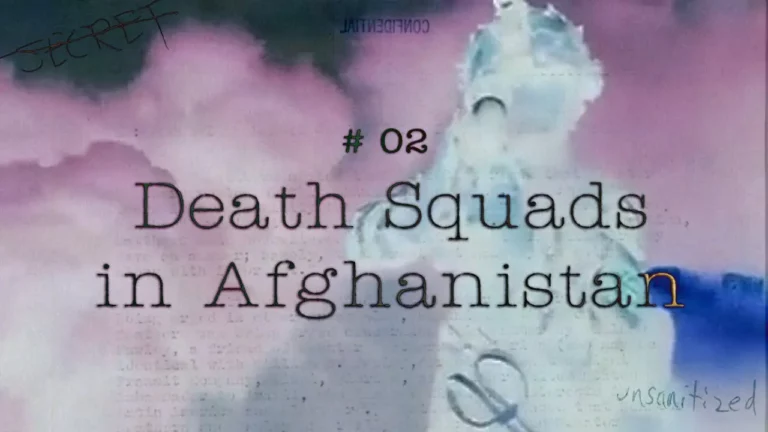
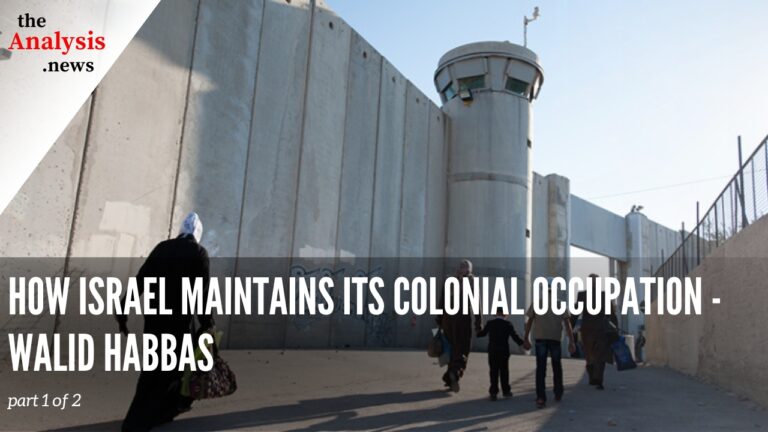
I live in Sudbury Ontario, a mining town with a strong labour history. During both WWI and WWII the main mining giant here INCO (guided by their board member John Foster Dullers) refused to stop shipping tons of nickle to Germany. There are many favorable Nazi comments about INCO in the Nuremberg trials transcripts…..
Our downtown park has multiple cenotaphs but the main one is a black wall where the name of any Sudburian who has died fighting in ANY war will have their name carved. This insane premise was created simply to list Canadians who went to American to join the occupation of Vietnam on the memorial. No other non-Canadian supported wars are mentioned and definitely no mention of Sudbury’s Spanish War veterans.
When I take people through the park I show them the wall and the response is always a version of “I didn’t know that Canada fought in Vietnam, interesting!’ It is a war ‘memorial’ so Americanized that people actually known *less* about Canadian’s military history than they did before they saw it.
Since the late 1990s most leaders of the Canadian Forces are graduates of senior officer exchange program with the US Army’s Third Corps (III Corps) at Fort Hood, Texas. The goal is euphemistically called ‘interoperability’ or ‘harmonization’…..
Recently the Ford government, University of Calgary, local MBAs, Toronto lawyers and Ernst & Young accounting ganged up to burn down the local university during the pandemic so I can only expect such propaganda to remain unchecked.
John McCrae was a madman who had the option of joining the medical corps in WWI because of his medical training but instead he joined a fighting unit as a gunner so he could be near what he called “his beloved guns.” Flander’s Field was a major factor in the 1917 Conscription Crisis which pitted French and English Canadians and McCrae said: “I hope I stabbed a French Canadian with my vote” after the 1917 election. This was no idle threat, the Sudbury Star records that in the run-up to the election a French-speaking Sudburian was severely beaten by a pro-Conscription mob and was unlikely to not survive his injuries.
Thanks for this interview. I know of Mr. Jay’s family connection to Sudbury and have long followed Mr. Engler’s work. You guys have my complete moral support and I’ll see what I can do financially.